Words don’t make a writer…
Writers make words, and in the words of Asher (age four):
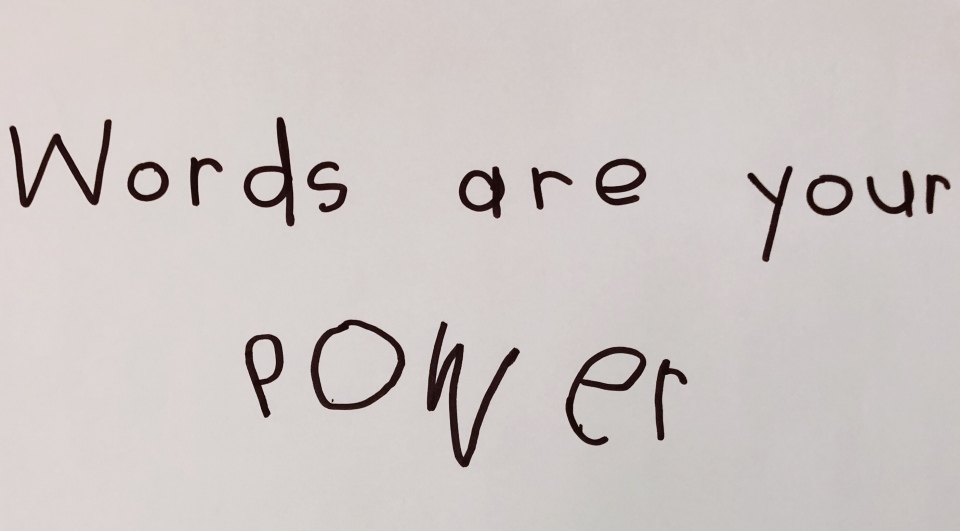
Words are, indeed, the human power.
We use our power to tell stories, to ask questions, to help, to teach, to express ourselves. Words get us into problems and words get us out of them.
Words are our power, and words are powerful. But words don’t make writers.
Yet, there’s the fact that many books have words, and kids notice that. There’s an expectation that from their very first year in school, kids write with both pictures and words. Rubrics and progressions rate writing, categorize writers, based on volume and accuracy of words. To kids, to families, to educators, these can lead to the false notion: “The more words, the better the writing. A writer who writes many words = a stronger writer.” It’s no wonder we, educators, caregivers, stress about the words kids are (or are not) writing.
And when we, the adults, stress about the words, kids stress about the words (and word-writing is stressful enough!).
So, before continuing, let’s pause to exhale, and remind ourselves:
- Just as we wouldn’t expect all kids to begin decoding at the same time, kids do not begin writing words at the same time (even when we are teaching them how to do so).
- Before kids can read words, we foster reading identities by saying, “There are many ways to read.” Before kids can write words, we can similarly say, “There are many ways to write and read your books.” Emergent literacy is paramount to a literate future.
- Pictures are REALLY, REALLY IMPORTANT! Elaborated pictures lead to elaborated words.
- Teaching kids how to use a growth mindset when writing words is as important as teaching them strategies for writing words.
- Marie Clay’s words, “If you can’t speak it, you can’t write it.” Just because we can’t see words, doesn’t mean they aren’t there.
Now that the pressure’s off, we can nurture the kinds of writers of writers who make words.
See What’s There Instead of What’s Not There
It can be easy to fall into the habit of categorizing the writing we see based on a current expectation (ex. 1. writing without words and 2. writing with words). Doing so can blind us from the rest of the writing that is there.
Instead, notice with what the writer is doing. Is there evidence of growth? Is there an opportunity to nudge the writer from where they are?

Ask, “Can I listen to you read your book?”
This question, intentionally phrased as a low-risk invitation, is encouraged by Matt Glover when engaging children in emergent reading. Asking the same question to writers sends the message that:
- Books don’t need words in order to be powerfully read.
- Pictures carry an important message and I’m interested in hearing more.
and:
- Strengthens oral language skills.
- Gives writers an opportunity to read the book at a more sophisticated level than they can represent with print.
Find An Entry Point For Words
Knowing our writers is important for finding a meaningful and enticing entry point for writing words. Listening to writers read their books is a great way to begin, keeping in mind things they are interested in.
Possible entry points include:
- Names of characters, places, things
- Action words and sounds
- Thinking and talking
- Feelings
- Warnings or signs
- Important details and vocabulary
Name the Purpose
We want to engage kids with writing words, not comply. Saying, “You have to write words,” fuels anxiety and can lead to even more resistance.
Instead, we can help kids see the purpose of writing words, authentic purposes that authors use all the time, when they think about their readers.
This can sound like, “Oh my gosh, as a reader of your book, I didn’t know that was ________ until you told me. That is such important information! It really helps me understand what you are writing about. Can I give you a tip? Since authors aren’t always there when people read their book, they use words to tell important information. I can show you how they do that/Can we try that together?”
Focus On the Process, Not the Product
When kids are motivated to write a word, we often hear, “How do you spell…?” and “Is this spelled right?”
Focusing on the process of spelling and checking a word can help diffuse the desire for perfection AND foster independence.
Here’s one way we can respond when a writer asks how to spell a word: “Wow, it’s pretty amazing that you are trying to spell a new word. That’s a tricky job that writers have. I’m going to give you some tips to use whenever you want to spell a new word. Say it slowly and write the sounds you hear. Then say it again and write more sounds. And again! Let’s try saying the word together slowly.”
Here’s how we can respond to a writer who is confirming if a word is spelled right: “It is so important that you want to check the word you wrote. Authors make sure readers can read their words! Can I show you a little trick that writers do any time they want to check the spelling of their words? They slide their pointer finger under the word while reading it slowly. They make sure all the sounds they hear are on the paper, in the right spot. Let’s try it together.” (A thumbs up after they try this, or “You wrote all the sounds you hear!” rather than “That’s right” or “That’s wrong” can help kids get comfortable with imperfection.)
It’s All About Transfer! Showing Words Are Powerful Across the Day
- Name the kinds of words and actions kids and characters use to fix problems.
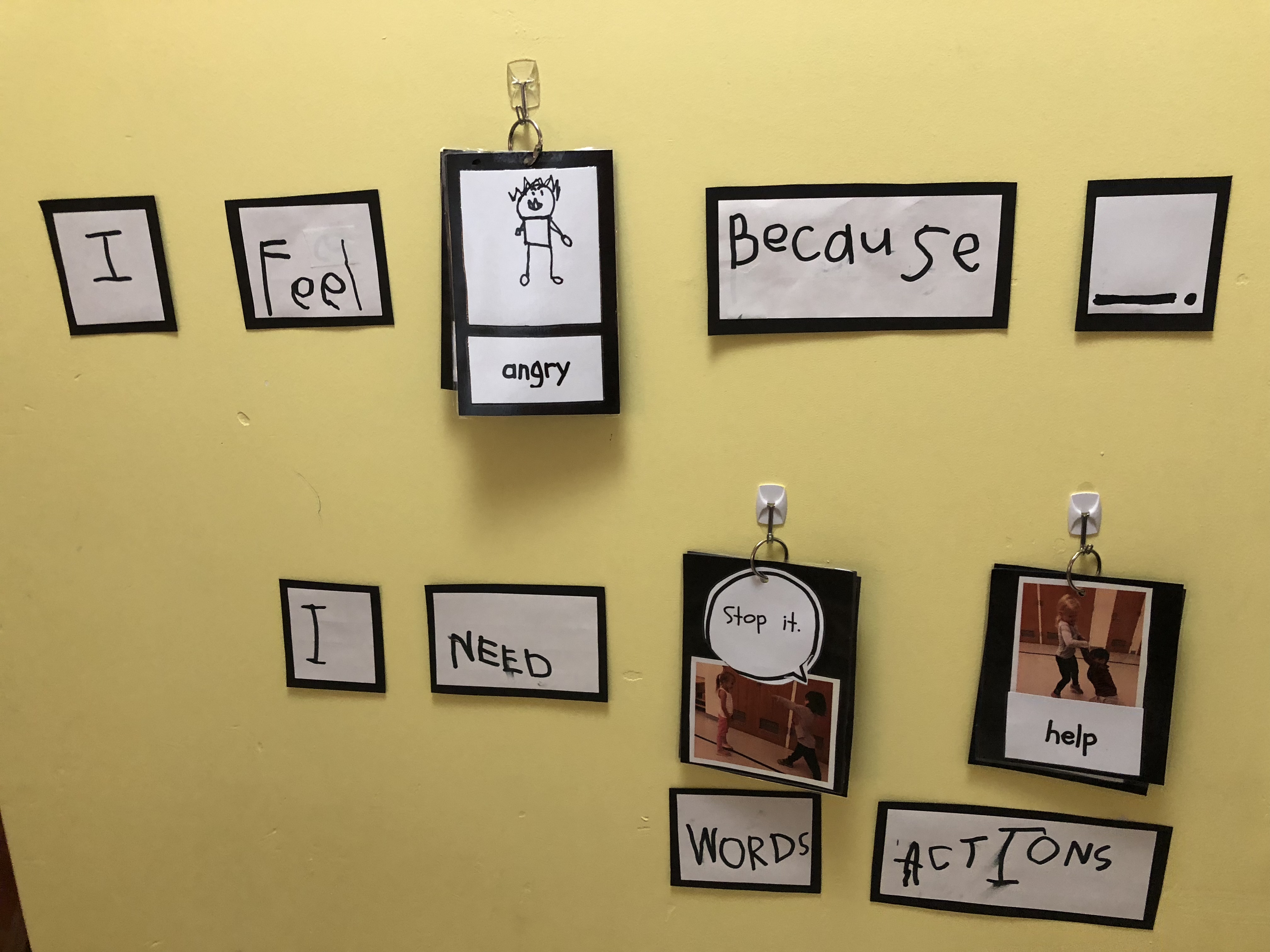
- There’s important information that pictures cannot show. Create a list of “Kinds of Words” across several weeks during read aloud and writing workshop share.

- Find low-risk entry points for word writing across the day.
- Write words together.
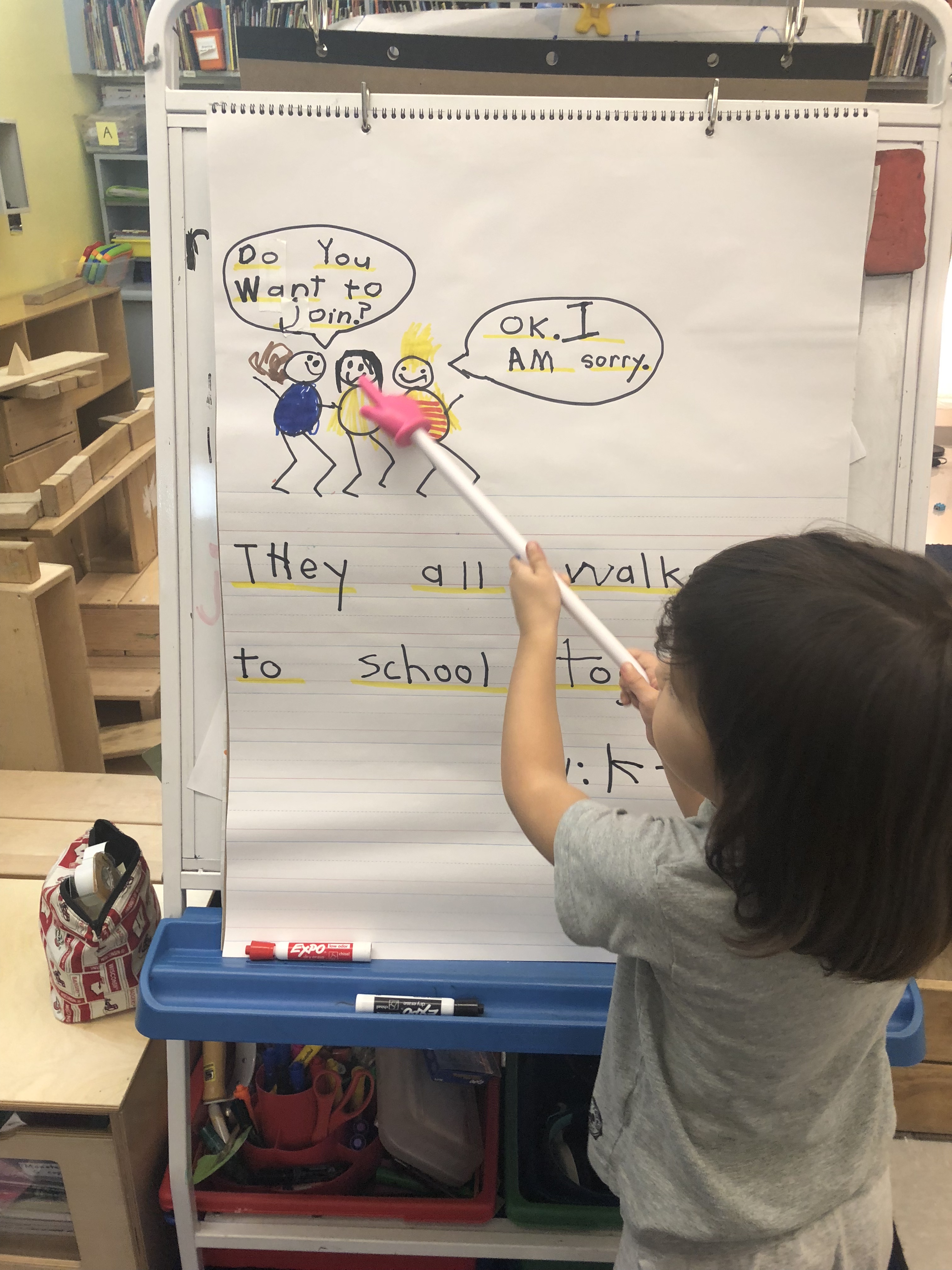
- Provide support! Tools and other writers are always there to help. We can show kids how to help each other write words by giving tips and with sounds and letters.
Flaps, label stickers, and dialogue bubbles are great motivators.
More Ways To Support Emergent Writers
Building Word Superheroes: With Permission and Invented Spelling, by Deb Frazier
Adventures in First Grade Writing, by Kathleen Neagle Sokolowski
Where Do the Words Go? by Betsy Hubbard
In Pictures and In Words, by Katie Wood Ray
Getting Started With Beginning Writers, by Katie Wood Ray and Lisa Cleveland
Engaging Young Writers, by Matt Glover

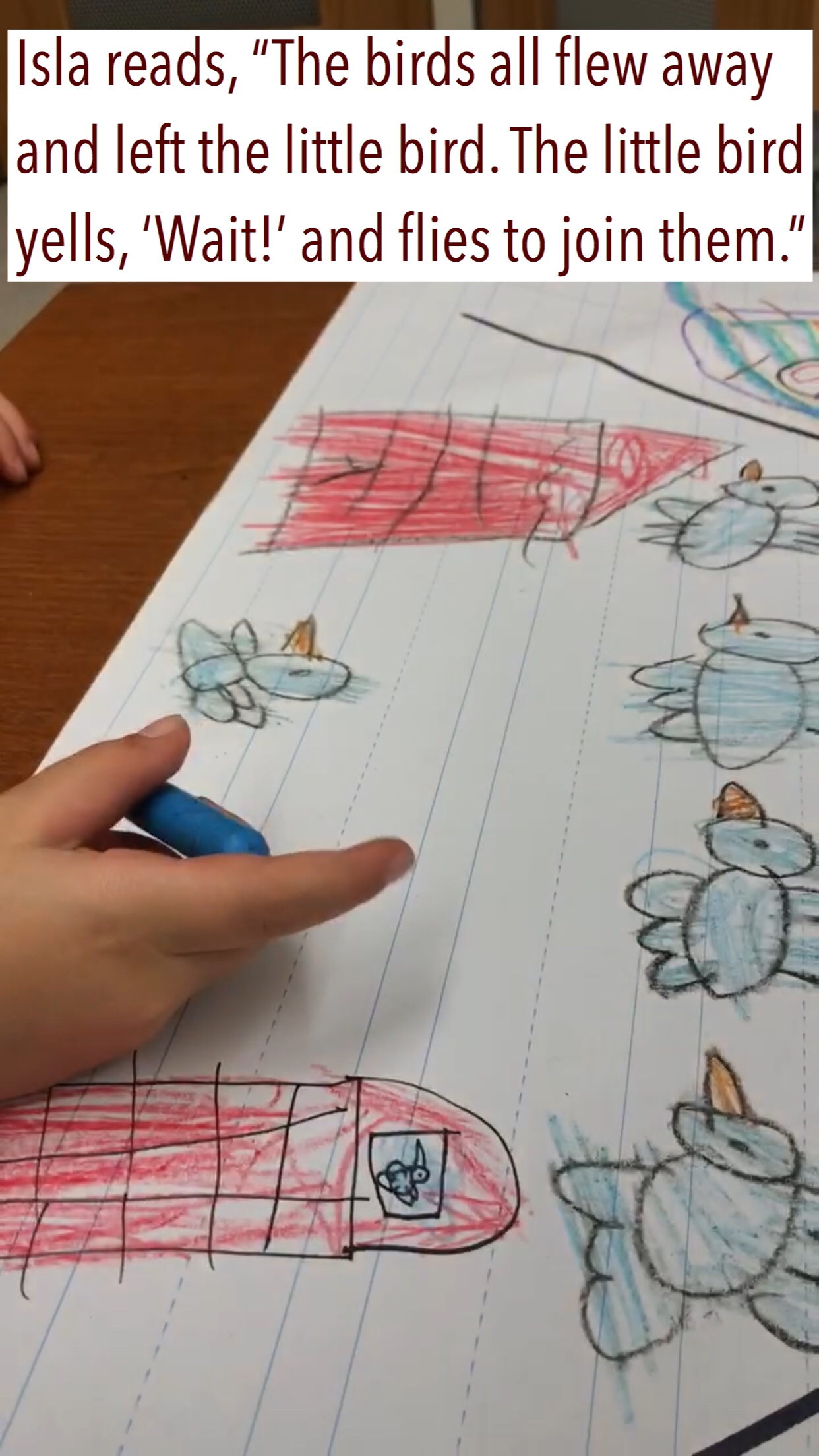
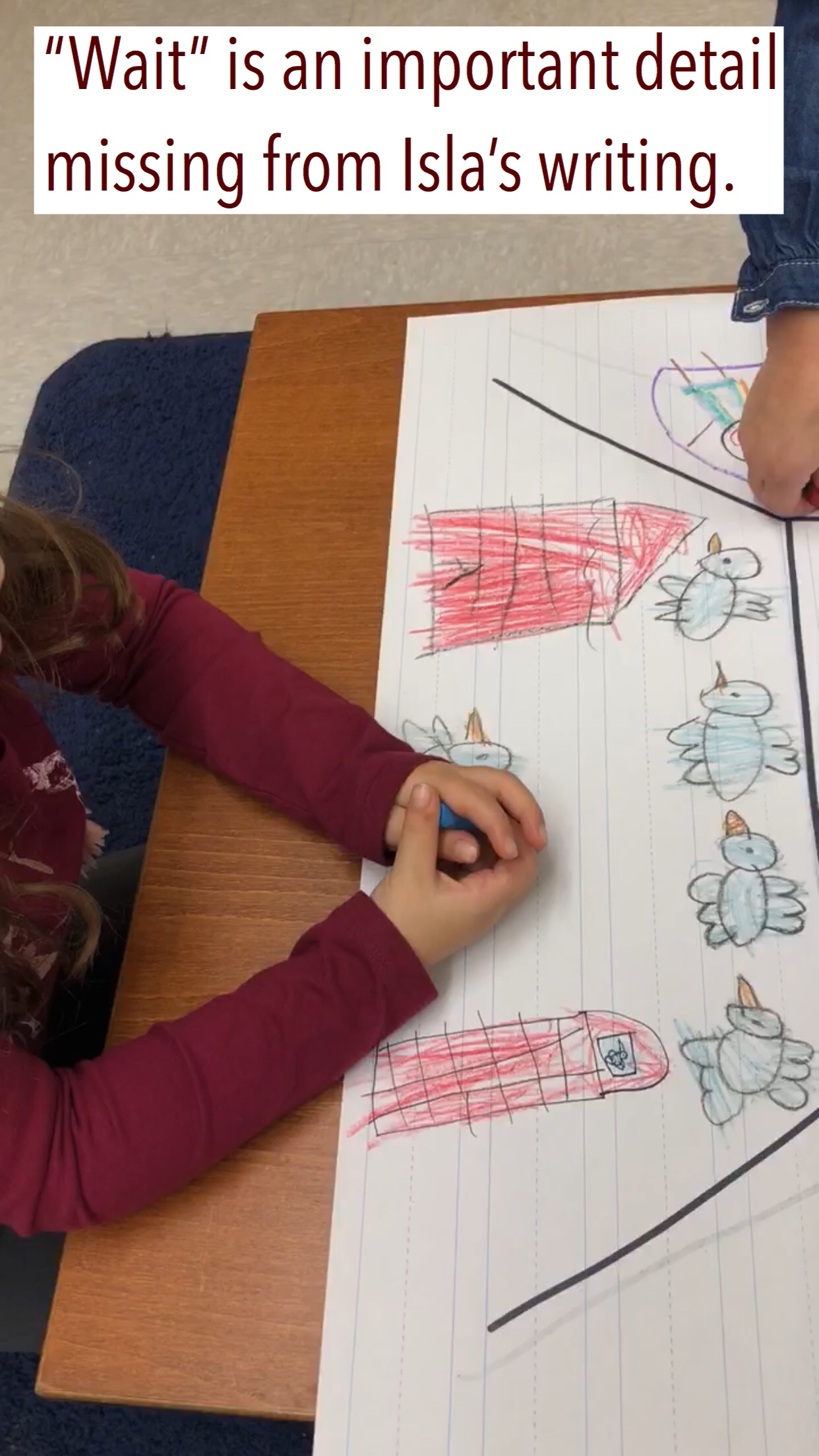
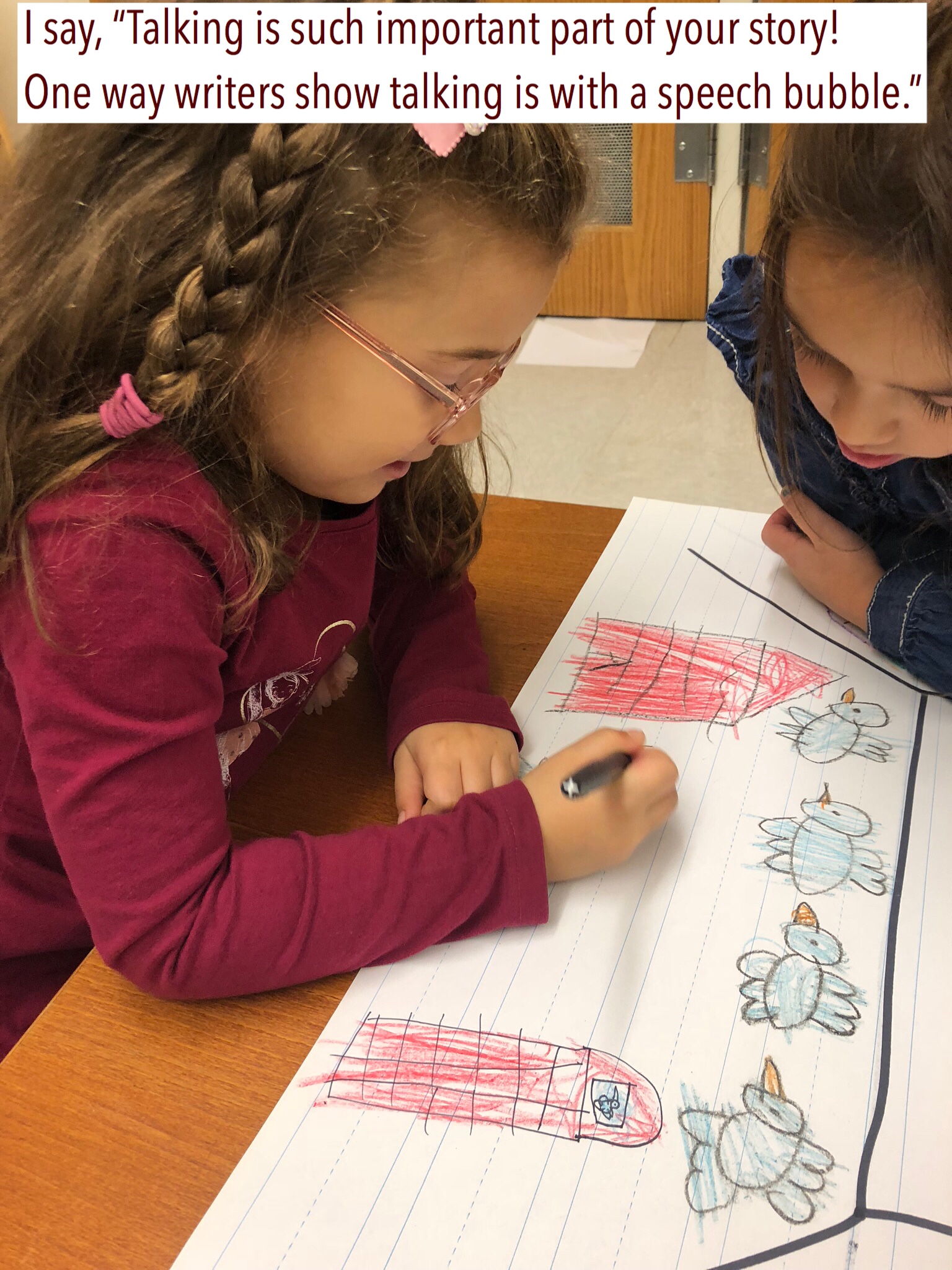












Kelsey,
I so wanted to meet you at #NCTE18. Darn weather issues! This post has so many gems for teachers of emergent writers. I have copied this to use: “Here’s how we can respond to a writer who is confirming if a word is spelled right: “It is so important that you want to check the word you wrote. Authors make sure readers can read their words! Can I show you a little trick that writers do any time they want to check the spelling of their words? They slide their pointer finger under the word while reading it slowly. They make sure all the sounds they hear are on the paper, in the right spot. Let’s try it together.” (A thumbs up after they try this, or “You wrote all the sounds you hear!” rather than “That’s right” or “That’s wrong” can help kids get comfortable with imperfection.)”
I started with the “You wrote all the sounds you hear!” but decided the whole paragraph is needed!
Thanks so much!
LikeLike
Thanks so much, Fran! This is something I’ve been grappling with for the last three years teaching K, so I needed to write this post on a personal level. The SOL dinner was one of the events I was looking forward to the most-so bummed to have missed it. I hope we will have another opportunity to meet soon!
LikeLike
I can not thank you enough for composing this blog post. This will be so helpful to teachers working with young learners. When I am confronted with a problem, more times than not, this blog post has some kind of a solution I can try. Thank you! Thank you! THANK YOU!
LikeLiked by 1 person
Thanks so much for your kind comment April! It made my day. This topic is one that I’ve been really grappling with for several years, so it’s been a long time coming. So happy to hear that you have found it helpful as well!
LikeLike